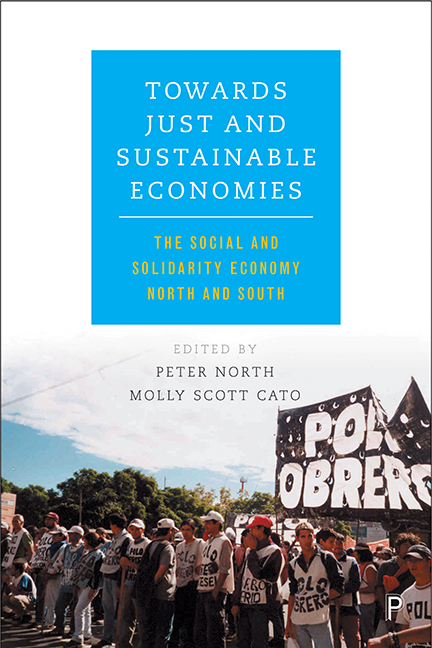Book contents
- Frontmatter
- Dedication
- Contents
- List of figures and tables
- Notes on contributors
- Acknowledgements
- One Introduction: new economies North and South – sharing the transition to a just and sustainable future
- Part I Theoretical perspectives on the social and solidarity economy
- Part II The social and solidarity economy as a site of social innovation
- Part III The social and solidarity economy and the state
- Part IV Policy translation between North and South
- Index
Nine - Fundos de Pasto: community governance of common resources in north-east Brazil
Published online by Cambridge University Press: 05 April 2022
- Frontmatter
- Dedication
- Contents
- List of figures and tables
- Notes on contributors
- Acknowledgements
- One Introduction: new economies North and South – sharing the transition to a just and sustainable future
- Part I Theoretical perspectives on the social and solidarity economy
- Part II The social and solidarity economy as a site of social innovation
- Part III The social and solidarity economy and the state
- Part IV Policy translation between North and South
- Index
Summary
Introduction
Discourses of natural resource sustainability have become mainstream since the Stockholm United Nations Conference on the Human Environment in 1972 and, as a consequence, the relationships between traditional communities and knowledge developed from their proximity to nature have been included in global debates. According to Castro (2000), this knowledge and its management are fundamental to biodiversity preservation. However, this is not uncontested. In mainstream economic theory, the self-regulating market is conceptualised as being capable of guaranteeing balance and efficiency in the use of natural resources, irrespective of traditional knowledge, and in this context Hardin's (1968) theory of the Tragedy of the Commons represents the orthodoxy in theories of common resources management. Without private property and a market in which to manage exchange, Hardin argued, rational self-interest will inevitably lead to resource depletion as it is in every individual actor's interests to maximise the benefit they accrue from common resources, while paying none of the costs.
As a counterpoint, Ostrom (1990) criticises not only Hardin's thesis, but also the conceptualisation on which it is constructed, namely game theory as formalised in the prisoners’ dilemma and, Olson's theory of collective action, with its emphasis on rational self-interest. Against Hardin, Ostrom argued that the management of resources does not always become a ‘tragedy’ because communities are capable of creating institutions, formally or informally, which guarantee higher levels of sustainability in the use of natural resources through collective forms of ownership and/or management – and in fact Hardin argued that for him tragedy came from an unregulated commons, not from commons per se.
As a contribution to this book's focus on collective, solidarity economies, this chapter aims to investigate community management of resources, based on Ostrom's theory, in the Fundo de Pasto of Paredão do Lou, a community located in the city of Monte Santo, in the state of Bahia, Brazil, that has developed the use of common resources as its main strategy for social reproduction. These Fundos e Fechos de Pasto originated from the separation of two extensive landholdings in the context of the colonisation and occupation of the land (Garcez, 1987).
- Type
- Chapter
- Information
- Towards Just and Sustainable EconomiesThe Social and Solidarity Economy North and South, pp. 155 - 176Publisher: Bristol University PressPrint publication year: 2017

